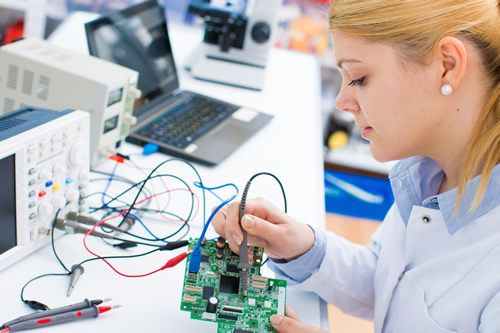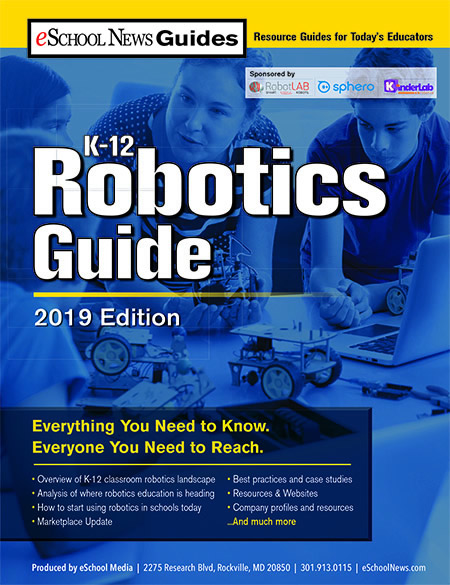Much of today’s impactful teaching focuses on the “why” behind the concept being taught. When it comes to STEM concepts such as robotics, educators and students alike may wonder why they should learn robotics if they don’t plan to pursue it in college or the workforce. The answer? Robotics education will help students for life.
Students are more engaged when they understand how classroom concepts apply in the real world. Learning how robotics, science, engineering, and other STEM concepts are used to solve complex problems speaks to the “why” behind robotics education.
Related Content:
eSchool News Robotics Guide
The eSchool News Robotics Guide is here! It features strategies to help you effectively integrate robotics into instruction, along with tips to find the right robotics resources to successfully teach key concepts. A new eSchool News Guide will launch each month–don’t miss a single one!
The skills students learn through robotics and other STEM activities are commonly referred to as “employability skills.” These skills, also called soft skills or 21st-century skills, will follow students throughout their lives whether they pursue STEM careers or not.
When students tackle a group robotics challenge, for example, they’re building collaboration and teamwork skills as they learn to work with one another and listen to each team member’s input. Communication skills are emphasized, as is grit–the ability to persist in meeting a challenge even if they first fail or experience setbacks.
Related Content:
eSchool News Robotics Guide
The eSchool News Robotics Guide is here! It features strategies to help you effectively integrate robotics into instruction, along with tips to find the right robotics resources to successfully teach key concepts. A new eSchool News Guide will launch each month–don’t miss a single one!
Here are some of the ways robotics education can help students for life.
Learning to fail: Many teachers focus on coaching students, instead of giving them step-by-step instructions, during robotics education. By coaching and not telling them what buttons to push or what sequence is correct, students are challenged to take ownership of their learning through design thinking. They grow to understand that it’s okay not to arrive at the correct answer the first time. They learn that failing is part of the learning process.
Inquisitive nature: Tomorrow’s inventors and scientists are today’s curious young children—as long as those children are given ample chances to explore and are guided by adults equipped to support them. Fostering a love of exploration and scientific inquiry will help students no matter what they pursue as adults.
Problem solving: Coding, robotics, engineering, and much of STEM in general focuses on solving problems–identifying the problem, testing solutions to see if they work, and reworking the solutions to try again if needed. This process can be modified for even the youngest of learners.
Grit: Call it sticking with it, not quitting, perseverance–whatever terms you use, robotics helps students build it. And in an increasingly competitive global economy, today’s students will need to develop grit to be successful tomorrow.
A foundation that connects to every industry: STEM education is a “foundation to our economy” and “STEM connects to every industry,” according to Project Lead The Way, which brings real-world and hands-on STEM learning into the classroom. Robotics education requires communication, collaboration, creative thinking, and reasoning–these learned skills are transferable to nearly every industry.
- Friday 5: Universal Design for Learning - April 19, 2024
- Educators love their edtech, but want more training - April 18, 2024
- Friday 5: College and career readiness - April 12, 2024



